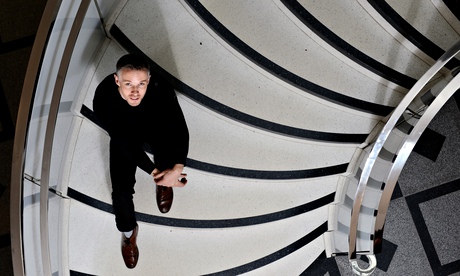
The annual Turner prize ceremony at Tate Britain has, over time, lapsed from the status of a night tinged with nerve-racking glamour to that of a comforting pre-Christmas ritual. Nicholas Serota, director of the Tate, glides around the Duveen galleries dispensing goodwill like a benign end-of-term headmaster. Penelope Curtis, Tate Britain’s director and chair of the prize, advances in his wake like a crisply punctilious head girl.
This year’s party on Monday night, took the form of a seat dinner rather than a drinks-and-canapes bunfight. Confusingly, the food was none the less canapes, which one served oneself with toothpicks on to tiny plates. (Can I have been the only guest to have topped up with a bowl of pasta at home?)
What was mentioned only sotto voce was how badly received this year’s shortlist had been. The BBC arts editor put the boot in on the Today programme (“quite a weak year”); the Times critic said the prize should have been “withheld, cancelled due to general indifference”; the Telegraph thought the whole thing should be handed over to the Art Fund to run.
For me it is a depressing sign of Britain’s uncertain relationship with contemporary art that a weak-ish shortlist should be accompanied by such apocalyptic demands. There have been some incredibly ropey years for Man Booker shortlists – but no one seriously suggests the game is up there.
Classical cough remedy
Tuesday evening at the Royal Festival Hall was billed as The Return to London of the Violin Legend Kyung-Wha Chung. The 66-year-old Korean emerged into glittering stardom on that stage in 1970 performing the Mendelssohn concerto under André Previn. There followed an astonishing career that paused in her mid-30s when she had a family; ill health and injury also conspired to keep her from the stage, and this was the first time she had performed in London for 12 years.
The hall was packed. Chung was clearly nervous. After the first movement of the opening piece, the gentle Mozart sonata K379, a fusillade of winter hacking broke out, so thunderous that she placed her fiddle under her arm to let it subside. And then – a little like the moment when Rafael Nadal is about to serve and the pin-drop tension is broken by an ill-considered shout from the crowd – came the high-pitched volley of a child’s cough.
Glaring balefully, Chung reprimanded the unfortunate family from the stage: they eventually removed themselves.
It was, perhaps, a touch charmless (though bringing a sick child to the concert was clearly ill-judged). Still, the episode seemed to lend an extra fury to her performance of Prokofiev’s first violin sonata. That woman is fierce.
A brutal truth
“You don’t, do you?” the Guardian’s foreign editor said when I confessed to liking brutal thrillers. Yes, I relax with Jack Reacher novels, Lee Child’s stories of a 6ft 5in former military policeman with hands the size of supermarket chickens. Reacher wanders America violently ridding it of bad guys while having liaisons with intriguing women, often employed in law enforcement. What’s not to like? (I guess it’s different if you spend your days, like the foreign editor, contemplating actual violence.)
It’s true that I’m also reading volume three of the astonishing My Struggle novels by Karl Ove Knausgaard, the Norwegian Proust. I also have Katie Mitchell’s The Director’s Craft and postmodern philosopher Mario Perniola’s The Sex Appeal of the Inorganic awaiting my attention for professional purposes. So I don’t begrudge myself the comforting joys of genre fiction.

